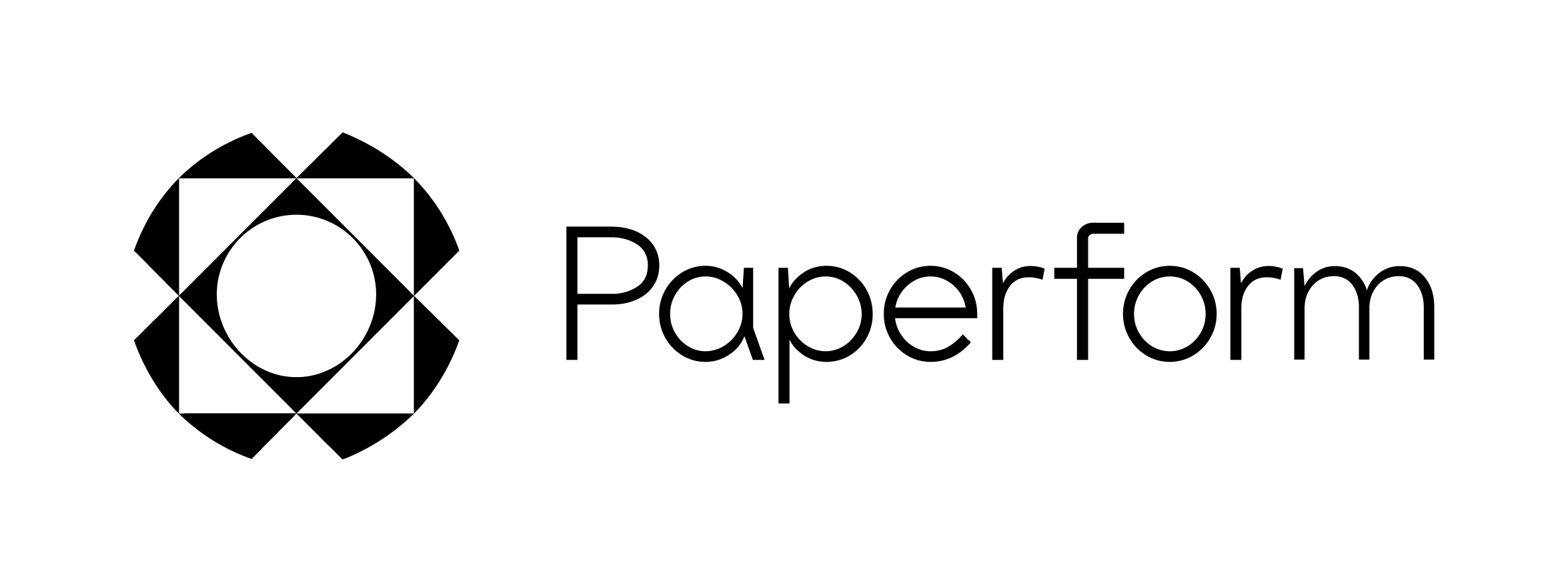
All Solutions
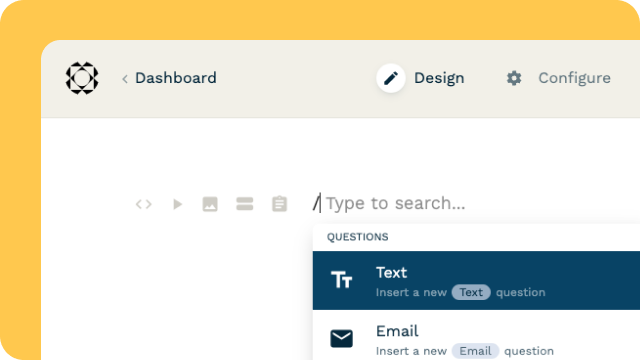
Explore all the solutions you can create with Paperform: surveys, quizzes, tests, payment forms, scheduling forms, and a whole lot more.
See all solutions











Connect with over 2,000 popular apps and software to improve productivity and automate workflows
See all integrationsSolutions
All Solutions

Explore all the solutions you can create with Paperform: surveys, quizzes, tests, payment forms, scheduling forms, and a whole lot more.
See all solutionsIntegrations

Connect with over 2,000 popular apps and software to improve productivity and automate workflows
See all integrationsResources
NPO Spotlight: The Ukrainian Volunteers Group

Rodion Salnik never imagined that war would touch his home country. “You never think this could happen,” he says. “A war in your home is impossible.”
But since the Russian military invasion of Ukraine on February 24, 2022, the impossible has become reality for Rodion and 44 million of his fellow countrymen.
As the war unfolds, the humanitarian crisis it causes only continues to grow. According to the UN Refugee Agency, 12 million people—over a quarter of the population— have been forced from their homes; with six million fleeing to neighboring countries.
The EU is estimating the conflict will create up to seven million refugees, a number that the EU Crisis Commissioner, Janez Lenarcic, says is of “historic proportions”.
In the face of this escalating tragedy, Ukrainians have shown remarkable bravery, resilience, and community. Each day there are new stories of ordinary people doing the extraordinary; dedicating resources, skills, shelter—anything they can—to support their fellow citizens.
Rodion, and the Ukrainian Volunteers Group (UVG) are just a few of those people. When we heard their story, we felt compelled to share it with you, our community, to showcase their incredible initiative, and voice our support for their cause.
We spoke via video call from the apartment in Lviv, in Western Ukraine, where Rodion and his girlfriend have sheltered with two other couples since fleeing their hometown in the early days of the war.
From startups to humanitarian aid workers
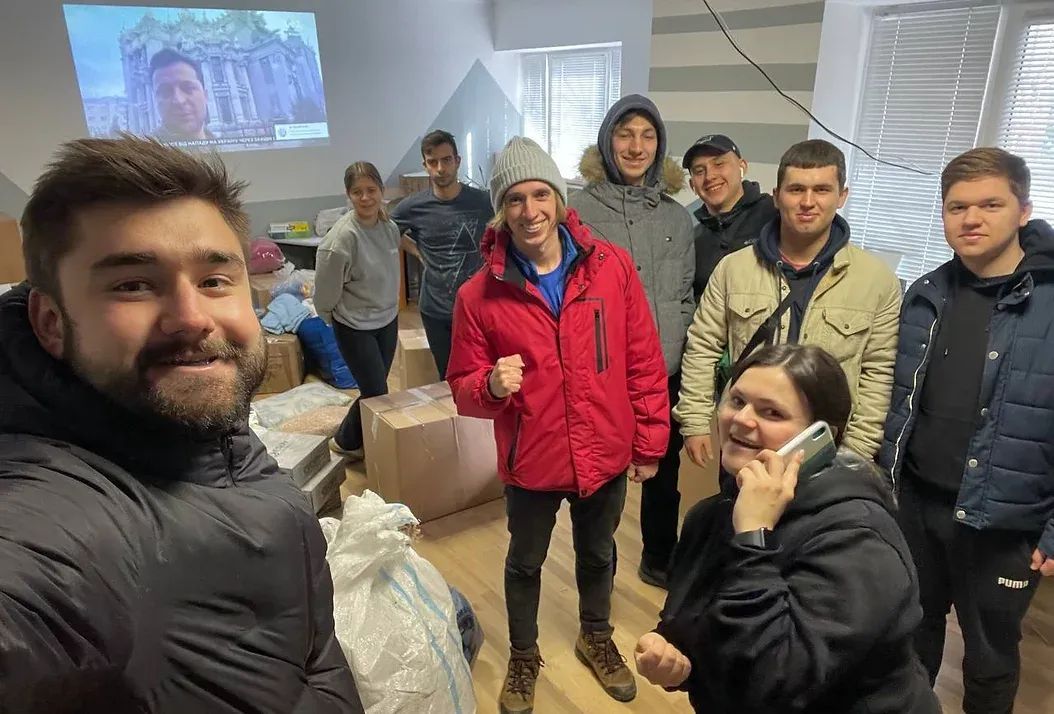 The Ukrainian Volunteers Group is made up of tech workers who have applied their skills to helping their fellow Ukrainian people in any way they can (image provided).
The Ukrainian Volunteers Group is made up of tech workers who have applied their skills to helping their fellow Ukrainian people in any way they can (image provided).Rodion Salnik has been a leading voice in the Ukrainian startup scene for over ten years. As Co-founder and CTO at Brocoders and Casers, he’s helped build and scale dozens of small businesses, growing the local startup community, and mentoring hundreds of the country’s brightest young entrepreneurs.
But for the last few months, he’s dedicated himself to an altogether new project. He’s delegated his usual work and poured his energy into assisting the thousands of refugees trying to escape Ukraine, and settle safely in neighboring countries.
He’s done so alongside the rest of the Ukrainian Volunteers Group, a tight-knit group of tech workers who’ve banded together to use their skills to help their country.
The group is made up of nine members of the Ukrainian tech community: Nazar Hembara, Oleh Pylypchak, Max Gladysh, Eugine Ursalov, Kateryna Baieva, Maryna Kozhedub, Sebastian Syroishka, and Daria Zakrevska. They’re supported by a network of international volunteers and friends.
“Before the all-out invasion, we ran businesses and launched startups,” reads their website. “So we have strong digital and management skills. Now, we use these skills to help the army and Ukrainians win the war sooner and survive this difficult time.”
UVG connects refugees with transportation, documents their travel, provides shelter and medical care throughout the arduous journeys (refugees often travel upwards of 12 hours through the war-torn countryside), and coordinates with organizations in countries like Lithuania, Norway, Austria, and Poland, to ensure people emigrate safely.
“It’s been a little difficult,” Rodion says when asked about his experience. His understated response is emblematic of his country: resilient, hopeful, and strong beyond measure.
Easing the burden of immigration
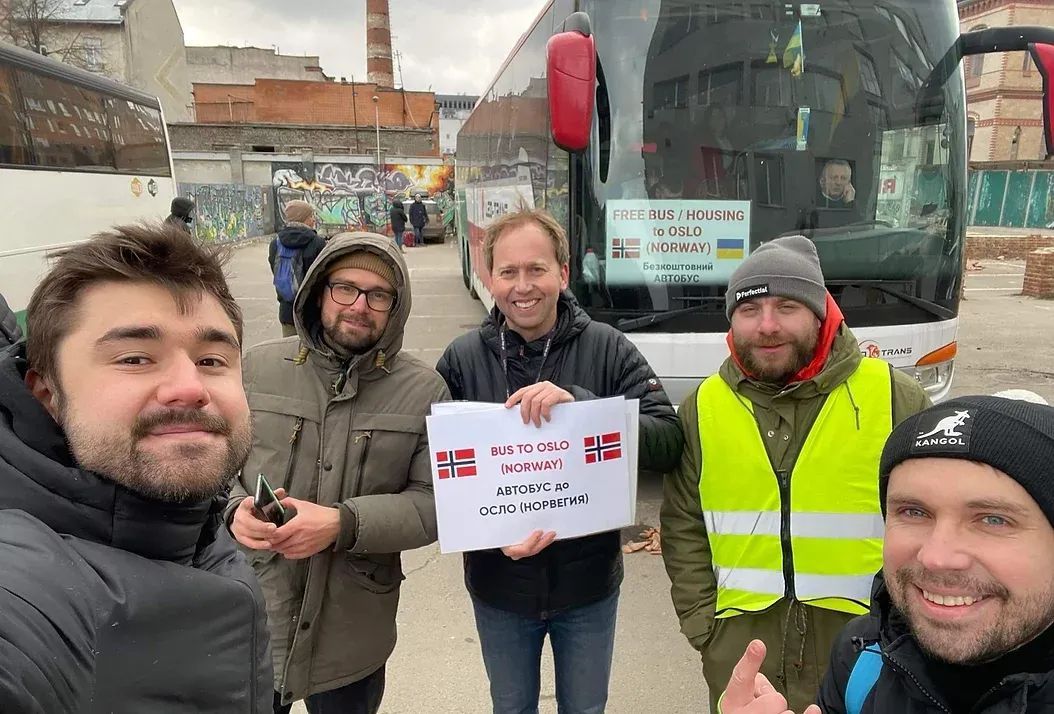 Members of the Ukraine Volunteer Group coordinate with humanitarian agencies from other nations to ensure safe passage (image provided).
Members of the Ukraine Volunteer Group coordinate with humanitarian agencies from other nations to ensure safe passage (image provided).In order to help Ukrainian refugees more effectively, UVG has partnered with humanitarian organizations in neighboring countries: Help Wing from Latvia, Norsk Ukrainastøtte from Norway, and Mademoiselle Martina from Austria.
Together, they organize and run free buses from Dnipro and Zaporizhia, cities in Eastern Ukraine that have become hubs for Ukrainians fleeing the war.
These buses take refugees to Lviv, in Western Ukraine, which is hundreds of miles from the capital, Kyiv, and the frontline in the Donbas region.
Lviv acts as a gateway to several bordering nations. From there, refugees can board buses, or drive to Poland, Germany, Lithuania, or Austria, where they can choose to settle or travel further into Europe.
The situation on the ground is dire. “Hundreds of people are dying every day,” Rodion says. “One day you hear stories of people losing their relatives and their homes, and you start to panic. To feel like everything is going to hell.”
It’s within this hellscape that UVG undertakes their life-saving work. They concentrate on providing safe passage for the thousands of refugees leaving daily in these buses, by ensuring each traveler is registered properly, has the care they need along the way, and that their details are sent to the proper authorities.
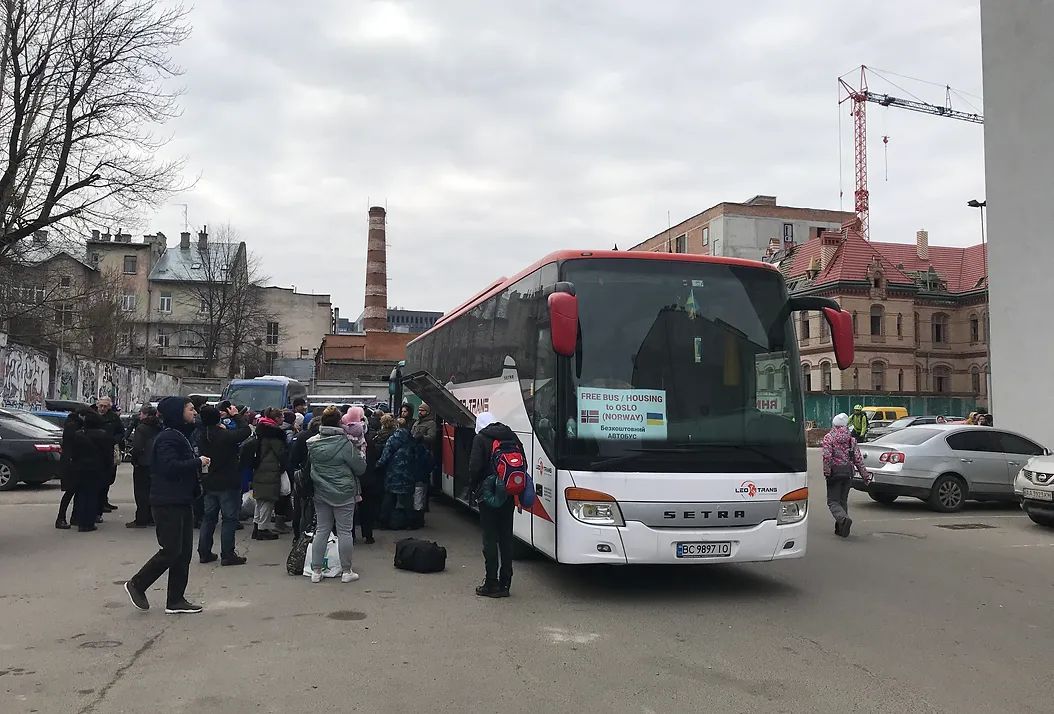 Dozens of hopeful refugees board a free bus to Norway (image provided).
Dozens of hopeful refugees board a free bus to Norway (image provided).In a war fought with tanks and artillery, paperwork might not seem so powerful. But it’s critical. Every Ukrainian refugee must be properly registered and have all their necessary documents in order to immigrate.
Registrations also allow the relevant agencies to track the status of families as they undertake the long journey across volatile terrain, and ensure they're supported along the way.
“The situation is not stable all the time. It is chaotic, difficult to organize, and changes very fast. Sometimes there are thousands of people waiting in line for 12 to 20 hours, just to cross the border… and sometimes, you see there’s a queue to come back.”
Streamlining the registration process
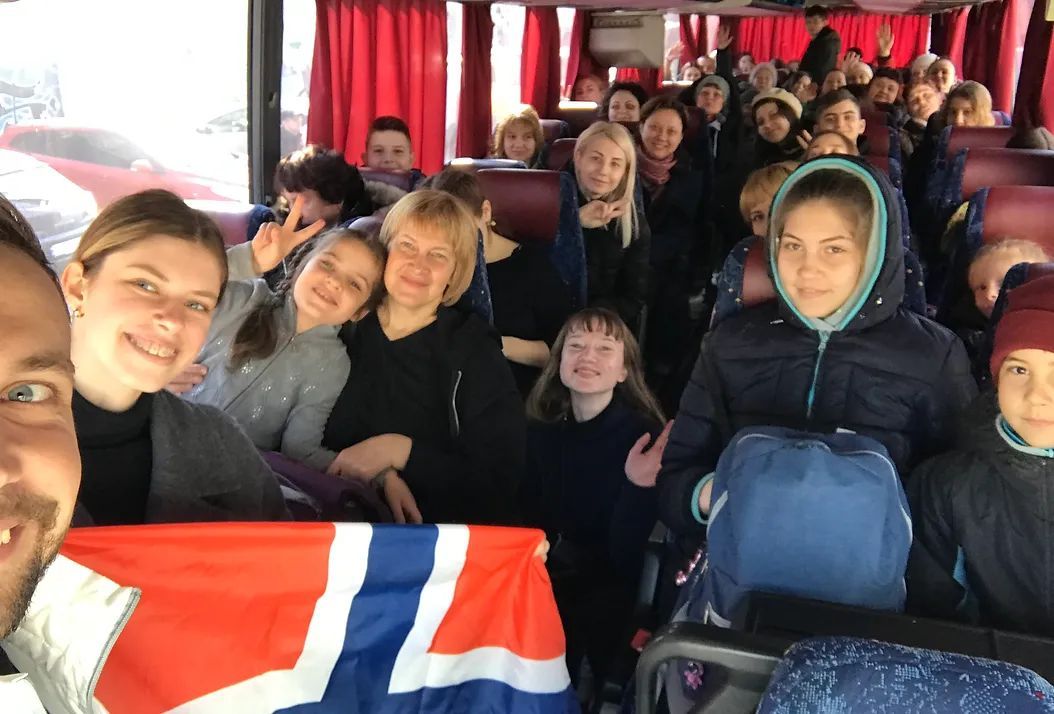 A group of Ukrainian refugees safely aboard a bus, headed for safety—and their new lives—in Norway (image provided).
A group of Ukrainian refugees safely aboard a bus, headed for safety—and their new lives—in Norway (image provided).Rodion and his team use their digital prowess to streamline one particularly tricky aspect of the refugee experience: registration. By creating a digital record of each person’s documents and travel history that can be shared with humanitarian organizations over the border, they ease the burden on refugees and the agencies managing their journey.
Buses leave daily from Dnipro and Zaporizhia, though the exact routes and schedules are constantly changing. To use another Rodion understatement, the situation is “chaotic”. Families only have moments to gather their belongings, locate the bus, and escape. There isn’t time to cut through bureaucratic red tape before they leave.
“We need the registration [sic] for the refugees… The information is used by the shelter if they stop in temporary accommodation, which usually happens before they go further to Europe. The second [use] is on the border, and the third is somewhere in Europe at the final destination.”
In order to keep the process as simple and easy as possible, all the paperwork is handled once refugees are safely aboard the bus. Each bus is staffed with two paramedics, who treat the injured and soothe people suffering panic attacks. As if that wasn’t enough, they also help each passenger fill out the necessary forms.
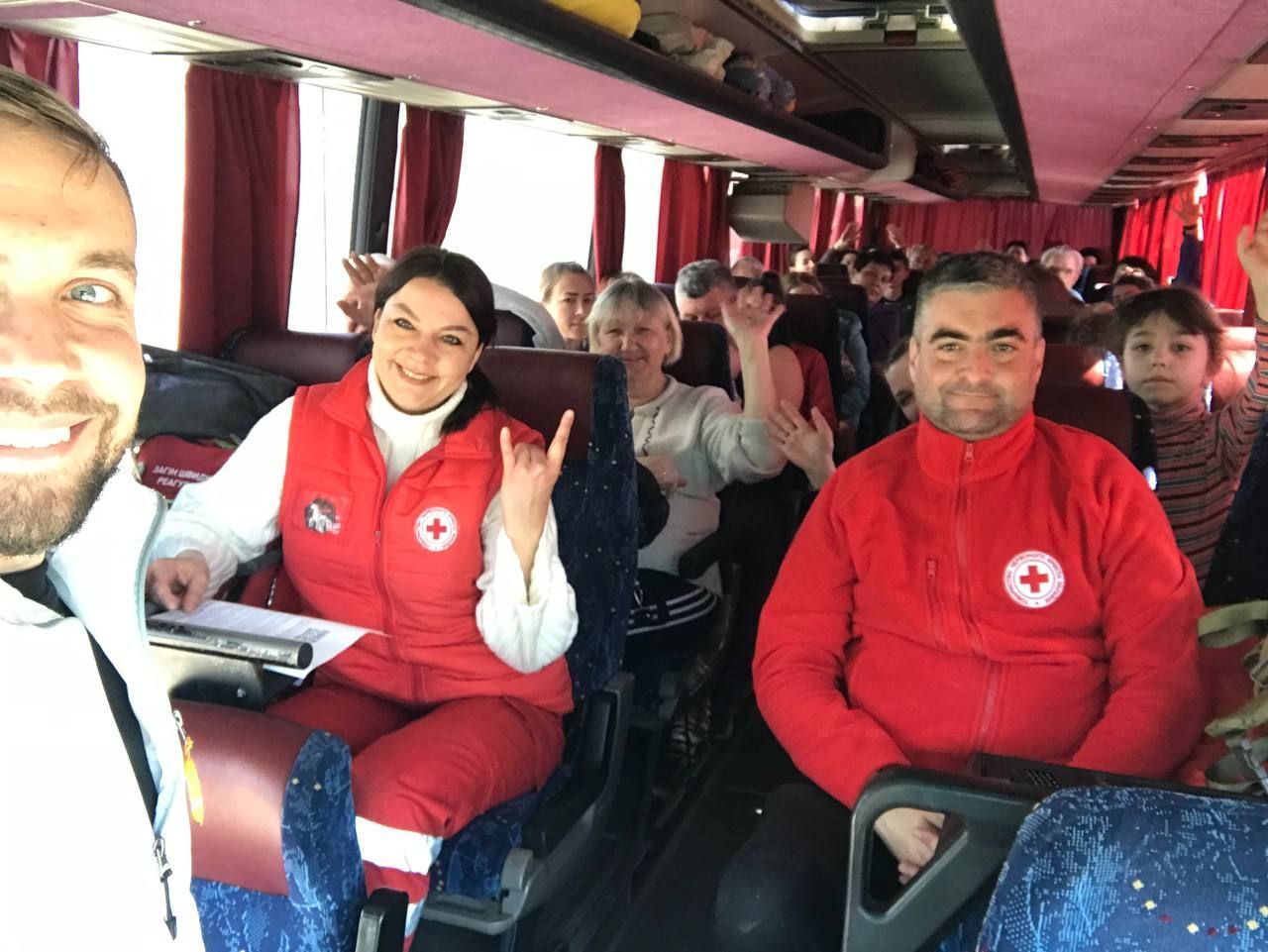 There are two paramedics assigned to each bus. Alongside providing care and support for the men, women, and children aboard, they're also responsible for filling out the registration forms (image provided).
There are two paramedics assigned to each bus. Alongside providing care and support for the men, women, and children aboard, they're also responsible for filling out the registration forms (image provided).“We’re dealing with people who have survived a significant crisis, and don’t have enough patience for filling out a form. It’s easier to ask our paramedics to make this registration."
UVG uses Paperform for these registrations, which is how we first learned about this story. We’re immensely proud to have our services used for such a worthy cause.
The registration data is sent to a database that is then shared with relevant agencies—from local shelters to immigration in neighboring countries. Alongside personal details, the form collects information about how many people are traveling on each bus, when they will arrive in Lviv, and where they’ll go afterwards.
This information not only assists in the immigration process, it also lets UVG know how many refugees they can expect each night, so they can prepare enough beds, shelters and food for everyone in Lviv.
So far, they've evacuated over 4,000 men, women, and children (and their pets), helping thousands of families start their new lives.
Remarkably, they’ve also undertaken other initiatives across Ukraine—from sourcing and supplying 10 tonnes of military and humanitarian aid, to evacuating disabled and elderly civilians, purchasing ambulances for medics on the frontlines, and donating $3.5 million Ukraine hryvnia (about A$150,000) of their own money to local causes.
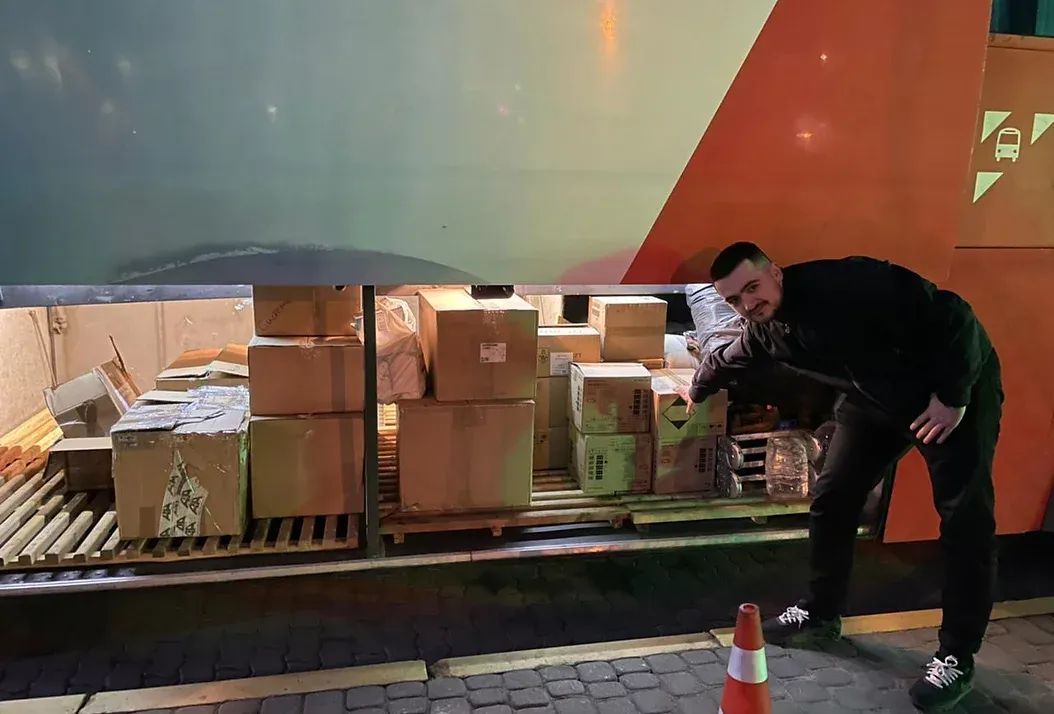 A bus loaded with food, clothing, and medicine (image provided).
A bus loaded with food, clothing, and medicine (image provided).As the war rages on, their work only becomes more pressing. When living through a tragedy of this scale, holding onto hope is an act of incredible defiance and bravery. It’s something that takes an emotional toll of its own.
“You’re trying to keep yourself under control all the time,” says Rodion. “But sometimes you just can’t. You find yourself crying about what might happen next."
“But I would say that currently, a lot of people seem optimistic, because of significant help from countries and people all over the world, and because we know what we are fighting for—democracy, freedom and our families.”
If you’re interested in learning more about how you can support UVG’s mission, you can learn more on their website, or on Instagram. They’re currently raising money to purchase new ambulances for the Regional Disaster Response teams in Dnipro, and Kryvyj Rih for the transportation of the ill and seriously wounded.
Paperform is proud to stand with Ukraine and is privileged to support users like UVG. Please contact us if you require a free account, or to discuss other ways in which we can help.
Paperform Contributor
Deepak (Dee) Shukla, the dynamic founder of Pearl Lemon, built the leading SEO agency in London by l...
Here is the ultimate list of online form builders, what they do best, their pricing, and examples to...
When Luiz Sifuentes lost the platform powering his entire web design business, he rebuilt smarter—wi...
All of our product updates and big company news for Paperform and Papersign from Oct 24 - May 25 to ...